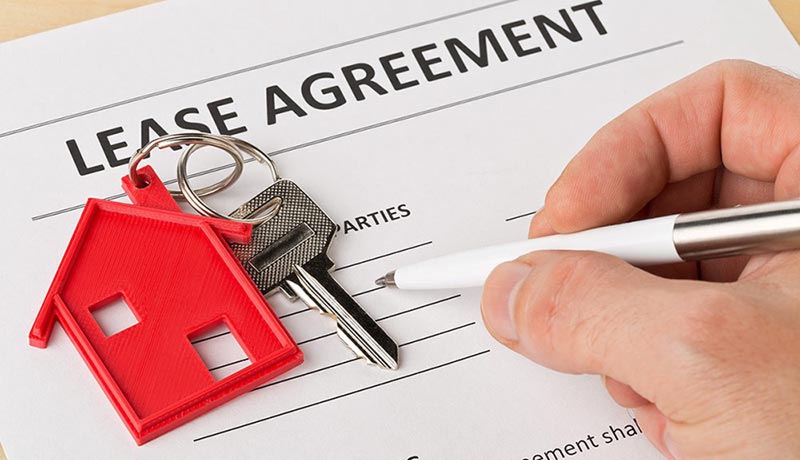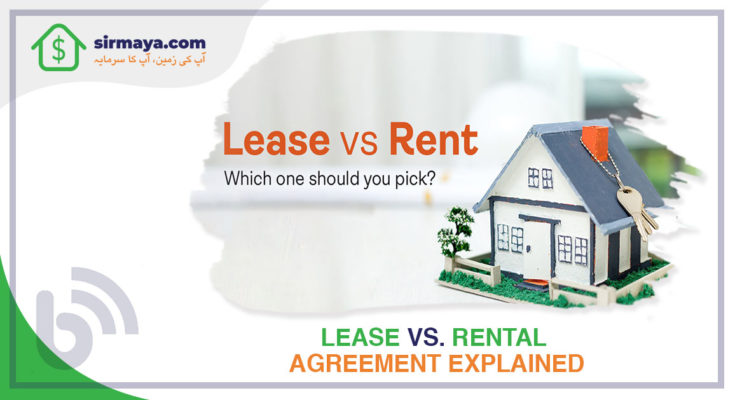Hopefully, this article will help you make the right decision between rent and lease and help you choose the option that works best for you!
Table of Contents
- Explaining Rental Agreement
- Explaining Lease Agreement
- Pros/Cons of Rental Agreement
- Pros/Cons of Lease Agreement
Many concepts regarding rental agreement and lease are confusing for wannabe landlords and renters. And easing that confusion, we brought you a list of differences between a rental agreement and a lease. Even though the two concepts can be used interchangeably in certain situations. There are some critical differences between these two terms.
When it comes to real estate, it is necessary for everyone, either landlords or renters, to know the differences between the two to avoid any unpleasant situation. Or conflict causing misunderstandings in the future.
Explaining Rental Agreement

The Rental agreement covers almost the same rules and structure as that of a lease. But, unlike a lease, the rental agreement is concluded for a shorter period, usually one month (30 days).
The agreement for a house for rent is automatically renewed at the end of the month. And it is easier for both the renter and the landlord to terminate the lease. The party must provide advance notice, and the time of notice depends on the given rental contract. And tenant/landlord laws prevailing in the country. If you sign a monthly rental contract, you must inform the landlord 30 days before moving out.
In addition, please take it as advice to carefully read your agreements before signing the contract so that you would already know what you have to do and what not to do.
There is a difference in terms of flexibility between the two agreements. Further in the article, we will look at the pros and cons of accepting a rental agreement. And a house for sale premises compared to a lease agreement.
Explaining Lease Agreement

An agreement that allows the tenant to use the rented property for a specified period is known as a lease agreement. The most common lease term is 1 Year (twelve months). Although leases can be signed for any term from three to twenty-four months. It depends on the agreement between the landlord and tenant.
The renter and the landlord must strictly adhere to the terms of the lease. These include a security deposit, the details of the rent, and the length of the contract. And repair policy, but it is not only limited to these; one can add several other terms accordingly. In addition, the terms of the lease are unchangeable only if both parties agree with the new rules. The landlord will not force the tenant to leave or will not be able to increase the rent unless it is written in a contract. Likewise, the tenant is required to maintain the property in good condition. And pay the rent on time, and abide by all the terms mention in an agreement.
Upon expiration, both parties can sign a new lease contract; the tenant can leave that place or switch to a monthly lease. The process for renewing a lease or leaving the property after the lease expires is governed by the agreement you signed at the start with your landlord. Moreover, landlord and tenant laws also state the same.
Pros and Cons of Rental Agreement

Getting a lease may not be the best solution for most individuals. Try to make a rental agreement if you don’t want to commit yourself to long-term rental agreements. Those individuals who are planning to buy their property shortly, ex-pats, and many students from other cities prefer to live on rent by signing rental agreements because they are short-term.
Pros
There is no doubt about it, and we all know that there is great flexibility for the landlord and the renter in choosing a rental agreement. If you have recently migrated to another city and would like to discover some neighbourhoods before choosing the ideal place to live in. Or if you have shifted to another city for a study purpose. Or even if you have an extended business trip, a rental agreement is there to provide you ease to live in for a shorter time. Landlords can benefit from signing a rental agreement if the property they own is in a flourishing market of real estate as they will be able to change their rental rates more often.
Cons
Possible frequent rent increases and the uncertainty of rental period lengths frighten many renters on agreeing with the rental contracts. It is certainly one of the most critical concerns. For a landlord, the drawbacks of agreeing with a rental contract include the potential for unpredictable rental income and the high tenant turnover.
Pros and Cons of Lease Agreement

If you are confident enough in your plans for the future, decide to sign a long-term lease agreement. As it proves to be a good preference for newlywed couples or families with minor children, pet owners, or anyone. Those who want to be able to stay in one place for a more extended time to avoid the hassle of commuting to work. And also for those who usually need some peace of mind in their lives.
Pros
One of the main advantages of a lease agreement for both parties is its stability. It would be ideal for any tenant looking for a place that can be their home for a long time without worrying about any changes in their agreement. Or the unexpected increase in rents. Likewise, homeowners who sign a lease agreement can easily calculate their future rental income. So they don’t have to worry much about the renter’s turnover and the associated costs.
Cons
One of the most significant drawbacks of signing an apartment/house lease agreement for a tenant is that they face difficulty terminating it before it expires. Without any legal reason, if you want to terminate your lease agreement, then you could end up paying a fine, face legal action, or even ruin your credit rating. The more significant disadvantage of a lease agreement for landlords is the impossibility of increasing the rent before the end of the lease term.
For more blogs, visit: https://www.sirmaya.com/blog/





